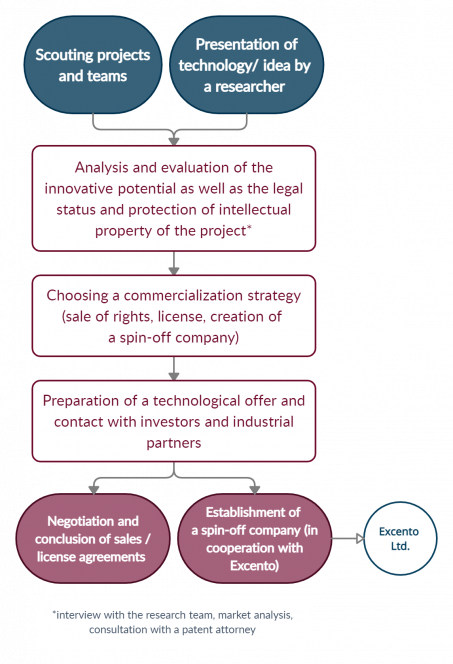The commercialization process at Gdańsk University of Technology

The process of commercialization of research results at Gdańsk University of Technology is defined in the Regulations for the management and commercialization of intellectual property at Gdańsk University of Technology, introduced by the Resolution of the Gdańsk Tech Senate No. 1172021 / XXV of 19 May 2021.
Below we present the most important regulations that should be kept in mind:
• If the production of the results (inventions or innovative solutions) took place as part of the employment relationship, the property rights to the results belong entirely to Gdańsk University of Technology (the employer), and the personal rights to the result belong to the authors of the solutions.
• Research workers report their research results to the Team of Patent Attorneys in paper form (the results should be simultaneously submitted in electronic form via the Moja PG platform). Patent attorneys provide detailed information on the possibilities of obtaining legal protection of the results and carry out this process.
• If the research results are to be commercialized, their author may not disclose relevant information, in particular through a scientific publication, press publication, participation in a conference, etc., as such disclosure will deprive Gdańsk University of Technology of the possibility of obtaining a patent or protection right.
• Commercialization of research results takes place through the Center for Knowledge and Technology Transfer and the Excento special purpose vehicle, in which the university holds 100% shares. The most common commercialization scenarios are:
- granting a license to companies to use the results,
- creation of a spin-off company based on the results.
• In the case of commercialization of an invention / utility model / industrial design or innovative solution by Gdańsk University of Technology, the authors are entitled to 50% of the profit from commercialization.

